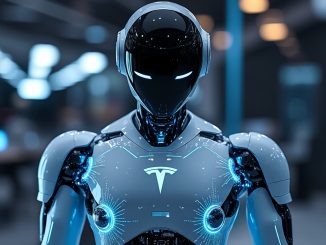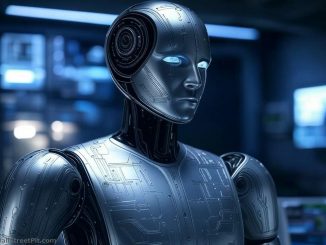
There is no denying that we are constantly in a state of flux with regards to technology, as advancements in artificial intelligence (AI), machine learning, and nanotechnology progress at an accelerated rate. Over the last ten years especially we have seen monumental leaps forward when it comes to science and technology; bringing us ever closer towards a world where AI is ubiquitous throughout our lives.
As a result of these exponential moves, we’re now learning that humans may be able to achieve immortality by the year 2030! It’s a mind-boggling thought, isn’t it?
Ray Kurzweil, a titan of modern science and technology who has lead the charge in artificial intelligence, robotics, and other revolutionary fields for decades, believes that in only 7 years humans might be able to live forever. Thanks to the tremendous expansion and progression of technological advances such as robotics, genetics and nanotechnology; it is possible that we will soon see microscopic robots coursing through our veins.
Nanobots are minuscule robots, with widths of 50-100 nm, aiding in medical science operations. In research they serve as DNA identification tools, cell imaging assistance and delivery vehicles that target specific tissues.
Kurzweil predicts that nanobots will revolutionize medicine, providing us with the power to repair our bodies at a cellular level and protect ourselves from diseases, aging, and even death. He further believes that humans can transcend mortality by uploading their consciousness into digital form – essentially achieving immortality.
The futurist also said that humans are “going to be able to overcome disease and aging. Most of our thinking will be non-biological, that will be backed up. So part of that gets wiped away, you can recreate it and we will be able to extend our lives indefinitely”.
Does Kurzweil’s opinion warrant a degree of skepticism?
Although a hint of doubt persists, it is undeniable that the prominent futurist and author has earned his reputation as a gifted forecaster; he was spot on when in 1990 he foretold that within 10 years, computers would beat humans at chess. Kurzweil also foresaw the expansion of the Internet as well as our shift to more wireless technology. But it was his book about singularity which drew immense attention: in it Kurzweil, who is credited as the original promoter of AI and singularity theories, predicted that by 2045 machine intelligence will have either equaled or surpassed human IQ.
As artificial intelligence expands its reach, we must remain mindful of the immense potential it holds—as well as the risks associated with this technology. That’s why, now, more than ever before, it is important to remain vigilant and keep a close eye on the welcoming rapid advancement of artificial intelligence technology.
While AI carries with it many potential benefits in terms of making life easier and more efficient, its intrusive nature demands our collective effort to ensure that we maintain autonomy and control over how this technology is used. We should strive to understand the implications of AI while also keeping an open mind towards its potential applications moving forward.
AI presents yet another challenge for this generation; but if approached considerately and responsibly it may benefit future generations in unpredictable ways.
As we move through this uncharted territory together, let us remember that our actions today will shape the world of tomorrow.
- Bulenox: Get 45% to 91% OFF ... Use Discount Code: UNO
- Risk Our Money Not Yours | Get 50% to 90% OFF ... Use Discount Code: MMBVBKSM
Disclaimer: This page contains affiliate links. If you choose to make a purchase after clicking a link, we may receive a commission at no additional cost to you. Thank you for your support!




Leave a Reply